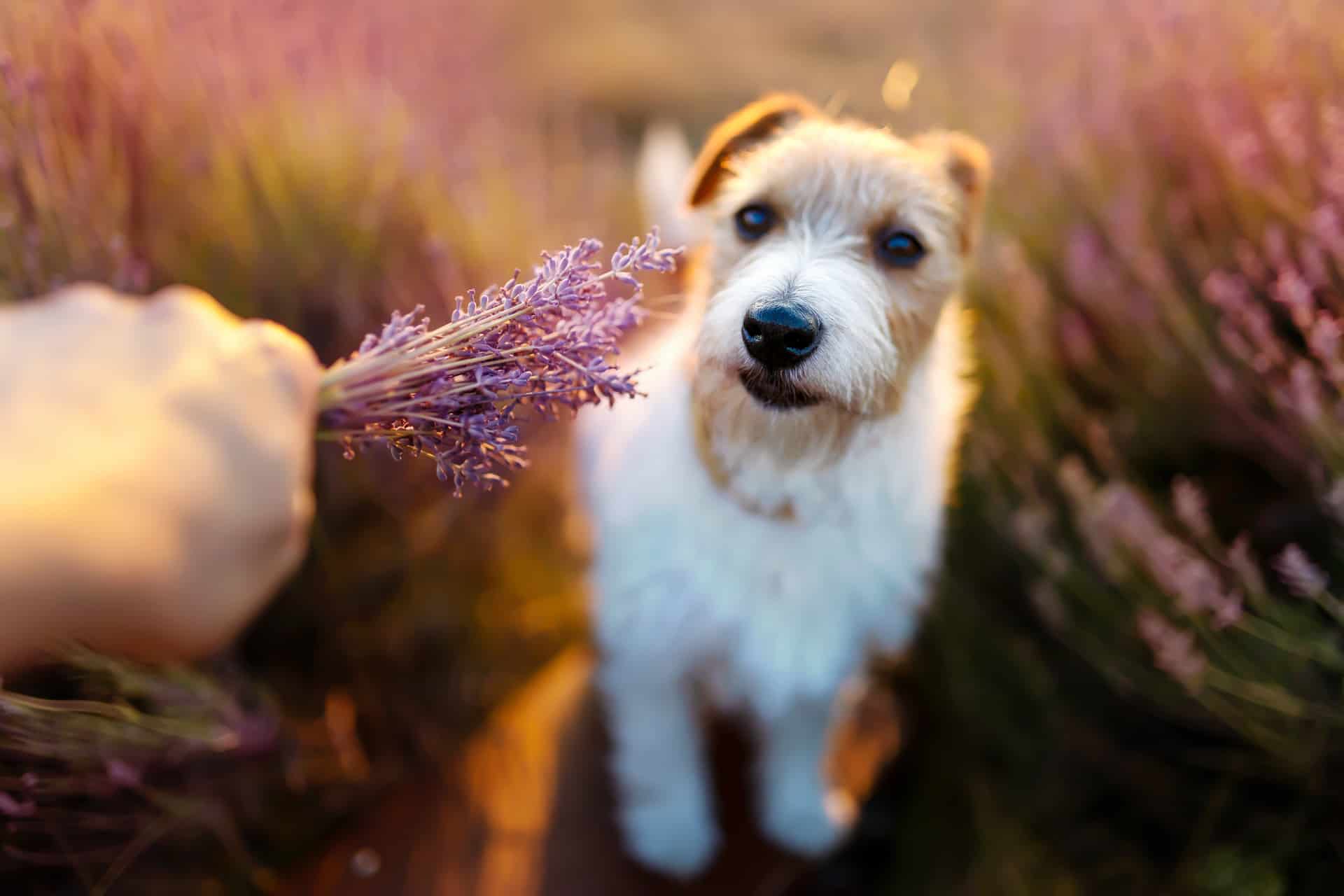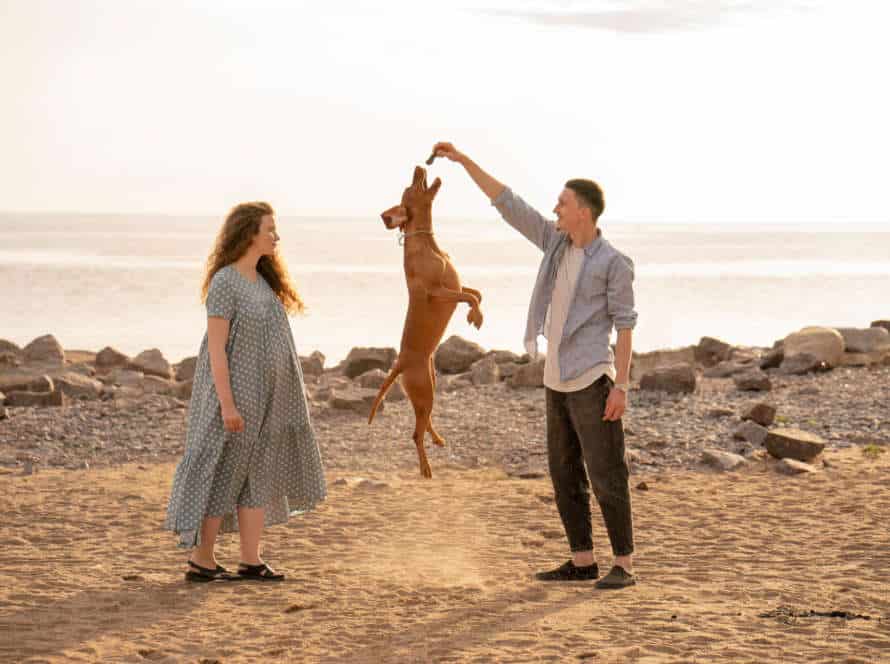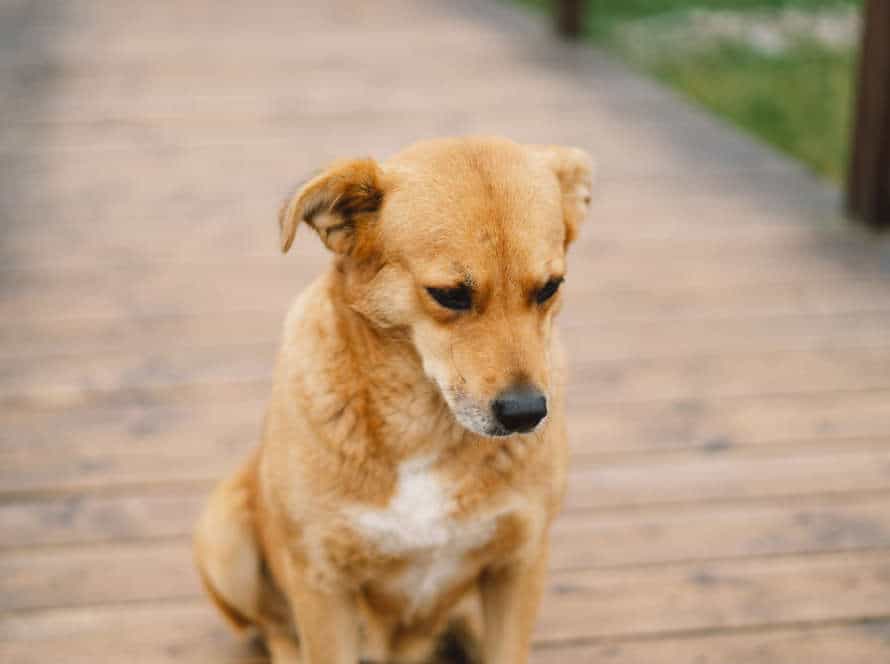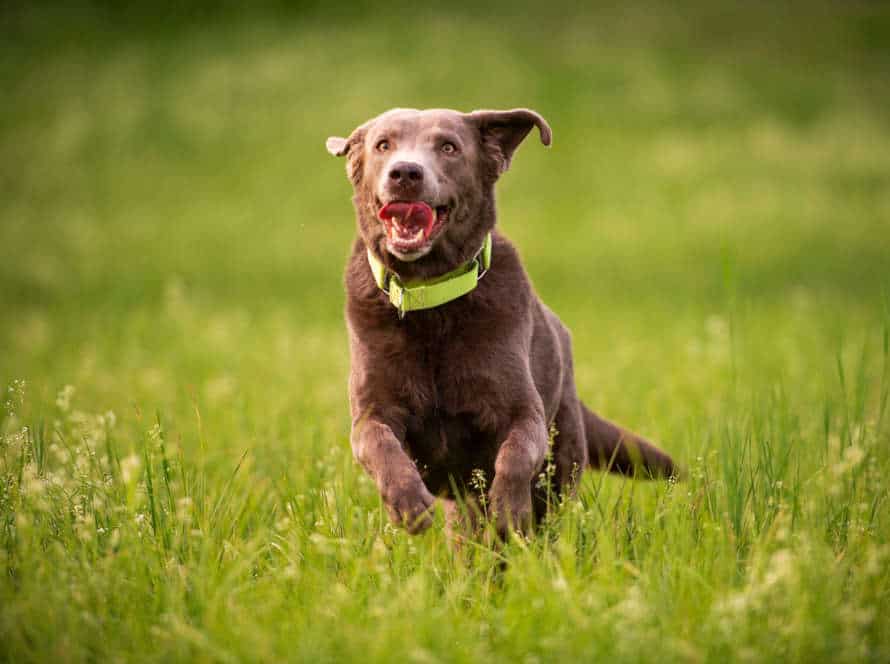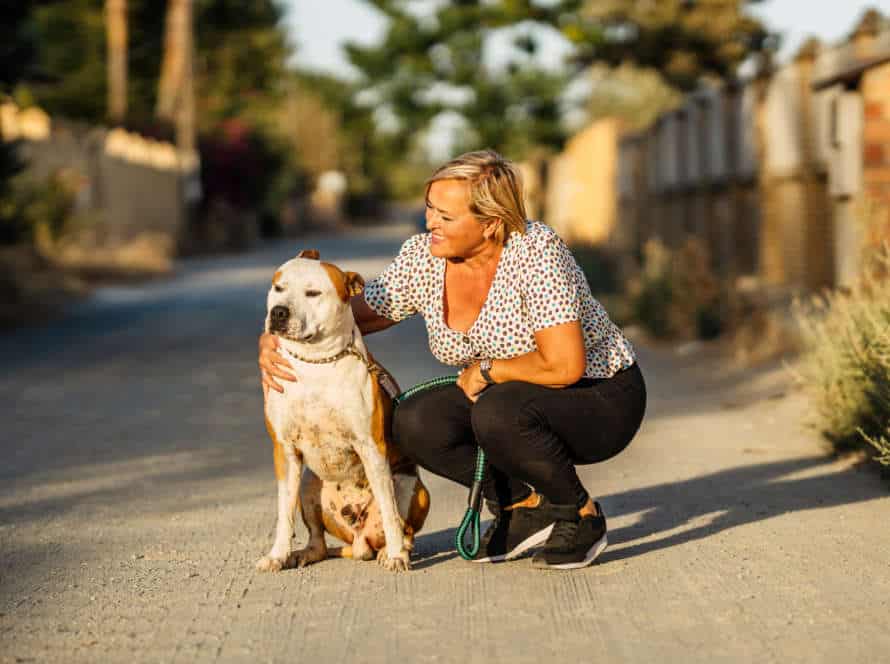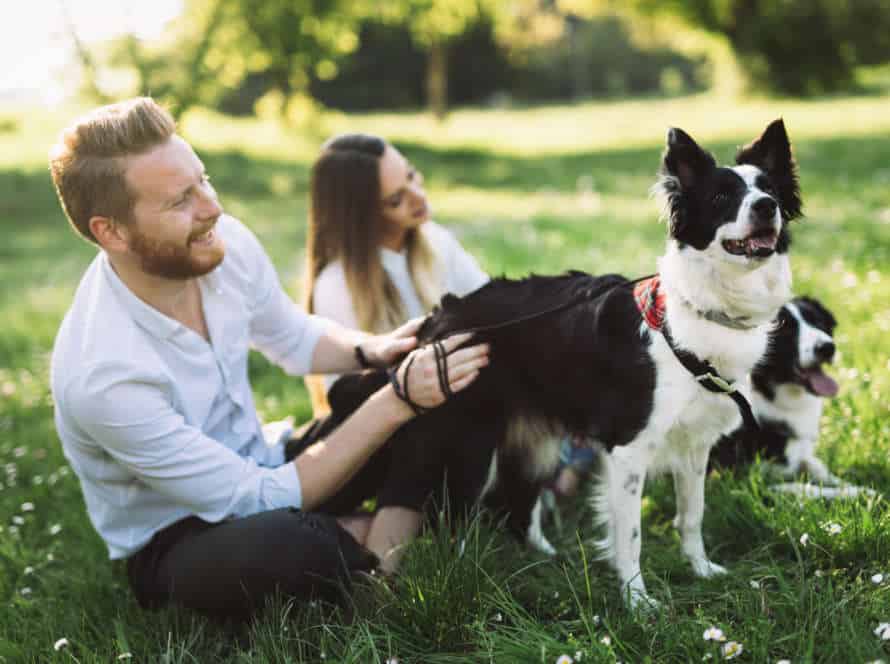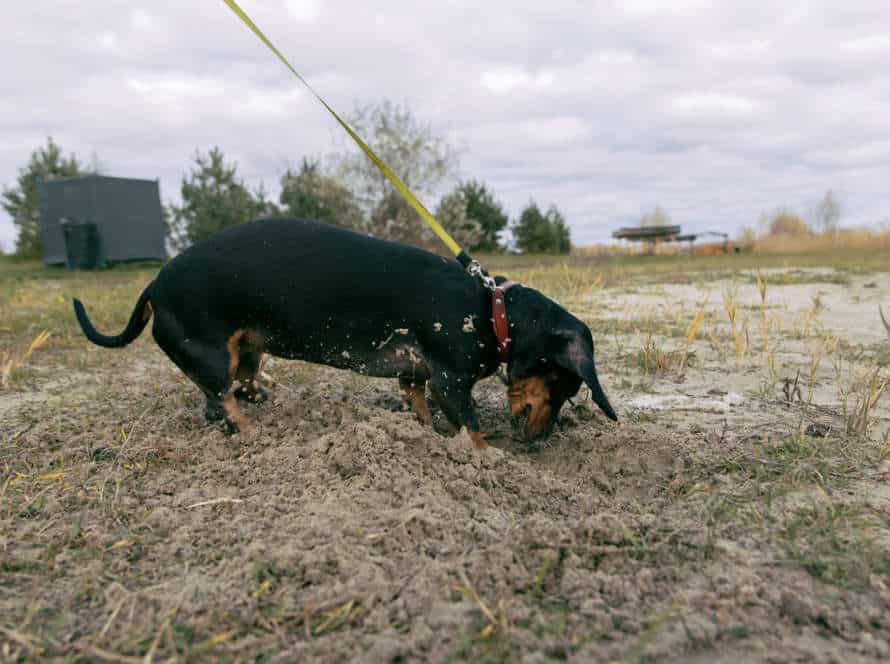How Aromatherapy Can Help Calm Your Aggressive Dog
Aromatherapy can bring peace to your aggressive doggy! Certain smells have special chemical properties that can help calm down an aggressive pooch. Lavender, Ylang-Ylang, and Chamomile are popular essential oils that can be used.
Add a few drops to a diffuser, oil burner, or a cotton ball near your pup’s nose. Introduce the smells slowly and watch for reactions.
Pro Tip: Consistent use of aromatherapy will train your doggy to connect the scents with positive outcomes!
Understanding Dog Aggression
Dog aggression is a term for hostile behaviors, like growling, barking or even biting. To help your pup, you must know the cause of their aggression. This article explains how aromatherapy can be used to soothe an aggressive dog. It’s a great solution!
Types of dog aggression
Dog aggression is a common problem among pet owners. It’s vital to understand the different types. Territorial, Fear, Dominance, and Predatory Aggression all have unique triggers and characteristics. Territorial is when a dog perceives a threat to its area or personal space. Fear is when they feel threatened or insecure. Dominance is when a dog attempts to be in charge. Predatory is when they chase and attack animals.
Aromatherapy is a great way to calm aggressive dogs. Lavender and chamomile are calming scents. They can be used in diffusers, sprays, and collars. Consult with a vet before use, for safety.
Signs of aggression in dogs
Aggression in dogs can be expressed in many ways, from barking and growling to biting and attacking. To truly address the issue, it’s important to understand what causes it. Signs of aggression in dogs include:
- Baring teeth or snarling
- Growling or barking
- Lunging or biting
- Raised fur along the back
- Stiff body posture
Aromatherapy can be used to naturally calm an aggressive dog. Dogs have a strong sense of smell, and certain scents can reduce anxiety and relax them. Lavender, chamomile, and peppermint essential oils are known to help with aggression. However, it’s best to consult your vet or an aromatherapist to find the right treatment and ensure your pup’s safety.
Factors contributing to aggression in dogs
Aggression in dogs may be caused by various things. These include genetics, environment, medical issues, and prior traumas. Comprehending these factors can help pet owners put in place effective measures to manage their dog’s aggression.
- Genetics like previous aggression in the dog’s breed or family can raise the chances of aggressive behavior.
- Environmental elements such as lack of socialization, bad training, and mistreatment can also lead to aggression in dogs.
- Medical conditions like pain, sickness, or brain disorders can make dogs act aggressively.
- Trauma, like attack from another animal or maltreatment, can also cause aggressive behavior in dogs.
Aromatherapy, using calming scents like lavender or chamomile, may help calm down aggressive dogs by causing relaxation and reducing stress levels. Nevertheless, it’s important to consult a vet before using essential oils on your pet.
Introduction to Aromatherapy for Dogs
Aromatherapy can be handy for calming an aggressive pooch. Essential oils can reduce stress and anxiety, making them more comfortable.
Let’s learn the basics of aromatherapy for dogs! How does it work? What oils are good for different situations?
What is aromatherapy for dogs
Aromatherapy for dogs uses essential oils and plant extracts to improve their emotional and physical health. Essential oils come from plants and affect a dog’s behavior and mood. They can have calming, soothing, or stimulating effects. Aromatherapy may help calm aggressive dogs.
Certain essential oils can reduce stress, promote relaxation, and improve wellbeing. Lavender, chamomile, peppermint, and frankincense are the most common oils used for aromatherapy. Diffuse or apply topically, but be careful – essential oils can be toxic! Consult a vet before using aromatherapy with your pup.
How aromatherapy works for dogs
Aromatherapy is a natural, holistic way to help calm your pup’s aggression, fear, and anxiety.
It works by stimulating the olfactory system with essential oils, which come from flowers, herbs, and plants. The smell is taken to the brain, causing an emotional response. This can make a calming, relaxing atmosphere and have a positive effect on the dog’s mental and physical health. Essential oils like lavender, chamomile, and bergamot have been found to soothe dogs, reduce stress, and help them relax. It’s important to get high-quality oils and dilute them before using. It’s also wise to talk to your vet before introducing aromatherapy to your pup’s routine – for safety and health.
Benefits of using aromatherapy for dog aggression
Aromatherapy is a great, natural way to help calm an aggressive pup. Adding essential oils to their environment, body, and behavior can really help reduce aggression, stress, and anxiety.
The advantages of using aromatherapy for dog aggression are:
- Reducing stress and anxiety: Aromatherapy can help reduce stress and anxiety levels, improve their mood, and relax them.
- Enhancing behavior: Essential oils can help with behavior and training by promoting focus, attention, and positive reinforcement.
- Improving immunity: Certain essential oils have antibacterial and anti-inflammatory properties, which can strengthen your dog’s immune system and protect them from illnesses.
Pro tip: Always consult with a vet or professional aromatherapist before introducing essential oils to your pup’s routine, as some oils can be toxic to dogs when ingested or used in excess.
Essential Oils for Calming Aggressive Dogs
Aromatherapy with essential oils has been around for centuries. Nowadays, it is used to help soothe aggressive dogs. This type of therapy is totally natural and safe. It can modify your pup’s behaviour. Here, we’ll discuss about the essential oils that can be helpful for calming a dog that’s aggressive.
Lavender essential oil
Aggressive canine behavior can be difficult to control, but lavender essential oil could possibly soothe your pup. Studies demonstrate lavender essential oil calms dogs, reducing anxiety and stress.
Here’s how to use lavender essential oil to calm your aggressive pooch:
- Dilute 1-2 drops of the oil in a carrier oil, like coconut or olive.
- Rub the mixture on your dog’s chest or paws.
- You could also add a few drops of lavender essential oil to a diffuser.
It is paramount to take care when using essential oils around pets. Consult with a veterinarian before using them.
Chamomile essential oil
Chamomile essential oil is a great choice to calm aggressive dogs. Extracted from the Chamomile plant, it’s known for its calming and soothing properties. Here’s how Chamomile essential oil can help your pup:
- Aromatherapy: Diffuse Chamomile essential oil in the room where your dog is to help lower their anxiety levels.
- Direct Application: Dilute Chamomile essential oil with a carrier oil and apply it to your pup’s collar, bedding, or a handkerchief.
Note: Be sure to check with your vet before using any essential oils on or around your dog.
With proper usage, Chamomile essential oil can help your furry friend become more relaxed. It’s a useful tool for managing aggression in dogs.
Valerian essential oil
Valerian essential oil is a natural remedy to help calm aggressive dogs. It reduces stress and anxiety levels through aromatherapy.
The oil is extracted from the roots of the valerian plant. It has a strong, earthy scent that soothes and relaxes dogs.
To use it for canine aromatherapy, dilute 1-2 drops of valerian essential oil in 1-2 tablespoons of carrier oil. Rub the mixture on your hands and let your dog smell it.
Alternatively, add a few drops to a diffuser. Allow the mixture to spread throughout the room.
Repeat this process when needed, such as during thunderstorms or fireworks.
Aromatherapy Products for Dog Aggression
If your pup has aggressive tendencies, you may be searching for a way to soothe them. Aromatherapy is a possible solution. It’s the use of essential oils with calming properties. These products can be used to keep your dog chill and relaxed during stressful moments. Here, let’s take a peek at some products available to assist with canine aggression.
Essential oil diffusers
Essential oil diffusers are a popular way of using aromatherapy to calm an aggressive dog. These essential oils contain calming and anti-anxiety properties:
- Lavender oil which widely known for its calming effect.
- Chamomile oil which has calming and anti-inflammatory properties.
- Bergamot oil which is an excellent stress buster.
- Vetiver oil with calming and grounding properties.
Make sure to consult your vet, use pet-safe oils and use diffusers in well-ventilated space. Observe your dog’s behavior and reactions.
Aromatherapy mists
Aromatherapy mists can be a great, natural way to help your aggressive pup relax. Dogs can get anxious for many reasons, like separation anxiety, fear or not being socialized. Aromatherapy can help soothe your pup’s nerves and create a tranquil environment.
Here are some aromatherapy mists to try:
- Lavender Mist: Lavender is well-known for its calming effects. Use a lavender mist to set a relaxing mood for your pup.
- Chamomile Mist: Chamomile can reduce stress and anxiety. Try a chamomile mist to help your pup relax.
- Eucalyptus Mist: Eucalyptus can be beneficial for dogs with respiratory issues that lead to aggression. It has anti-inflammatory, anti-bacterial and anti-viral properties.
Pro Tip: Before using aromatherapy products for your pup, it’s best to talk to your veterinarian. Some essential oils can be harmful.
Roll-on essential oil blends
Roll-on essential oil blends are perfect for using aromatherapy to calm your aggressive pup. They are natural and safe. Oils are known for having soothing effects on animals. Here are some popular oils for roll-on blends:
- Lavender: This oil has calming properties. It helps ease your dog’s anxiety and stress.
- Chamomile: This oil acts as a mild sedative. It calms nerves and helps with restful sleep.
- Frankincense: This oil has a grounding effect. It makes your dog feel emotionally stable and calm.
When making a roll-on blend, mix one or more essential oils with a carrier oil like coconut or olive oil. Then apply it to your dog’s neck or chest area when needed. Dilute the essential oils properly. Don’t use oils toxic to dogs. Talk to your veterinarian before using any essential oils on your furry friend.
Applications of Aromatherapy for Dog Aggression
Aromatherapy is an alternative medicine. It can be used to help reduce aggression in dogs. It’s a holistic approach. Essential oils are used to deal with the reasons behind aggressive behavior. In this article, we’ll look into how aromatherapy can help calm an aggressive dog. We’ll find out what essential oils can be used. We’ll also look at how to use them safely and the advantages of essential oils.
Topical application of essential oils
Topical essential oils are a great way to use aromatherapy for calming an aggressive dog. The right oils can help reduce anxiety and provide relaxation.
For your pup, try lavender, chamomile, or bergamot. Blend the oils with a carrier oil like coconut or jojoba oil in a 1:10 ratio. Apply to areas like the paw pads, chest, or behind the ears. Massage into the skin, avoiding the eyes, nose, and mouth.
Watch out for any adverse reactions. Discontinue use if needed.
Pro Tip: Talk to a vet before using essential oils on your dog!
Diffusing essential oils
Diffusing essential oils is an awesome way to chill out your aggressive pup and improve their behavior. Aromatherapy can help lessen stress and anxiety in dogs, making them feel more relaxed. Here are some oils often used for aromatherapy in dogs:
- Lavender: This oil has calming effects on dogs and can reduce stress and anxiety. Plus, it helps with sleep and relaxation.
- Chamomile: This essential oil is a natural sedative that can help calm your pup and cut down aggression.
- Bergamot: This oil is a mood lifter that can help with stress and anxiety. It can also help with depression and negative emotions.
- Peppermint: This oil is known for its calming and cooling properties. It can help with anxiety, stress, and irritability.
It’s super important to use good-quality oils and to properly dilute them before use. Always ask a professional before using aromatherapy on your dog.
The use of personal inhalers
Personal inhalers have become very popular for aromatherapy on the go. Now, pet owners are using them to help calm their dogs’ anxiety and aggression.
Aromatherapy uses essential oils with therapeutic benefits. Here’s how to use inhalers for calming dogs:
- Choose a blend like lavender, chamomile, or ylang-ylang.
- Put 15-20 drops of the blend onto the wick.
- Wait a few minutes for it to saturate.
- Inhale the fragrance when needed.
Inhalers can help relax dogs in stressful situations or when their aggression kicks in.
Precautions to Consider When Using Aromatherapy for Dogs
Aromatherapy can be great for calming down angry dogs. But, it has risks. This article will tell you those risks, and how to prevent them. Taking precautions is essential.
Dosage and dilution guidelines
When using aromatherapy for dogs, it’s essential to follow the proper dosage and dilution guidelines to prevent any adverse reactions. Here are a few precautions:
- Always choose high-quality, safe oils and avoid any that are toxic for dogs.
- Do not apply undiluted oils directly.
- Follow suggested dosage and dilution guidelines depending on your pup’s size and breed.
- Monitor your pup’s behavior and reactions; stop if there are signs of discomfort or allergic reactions.
- Best to consult a vet or certified aromatherapist beforehand. They can advise you with the right dosage, dilution, and oils based on your pup’s needs.
Allergies and sensitivities in dogs
Dogs may have allergies and sensitivities due to different things, such as food, chemicals, or seasonal allergies. When it comes to essential oils, pet owners must be careful. Here are some tips to remember when using aromatherapy on dogs:
- Research the oil to make sure it isn’t toxic.
- Always dilute it with a carrier oil before topical use or diffusing.
- Monitor your pup’s behavior to watch for signs of distress. Discontinue use if your pup reacts negatively.
- Don’t apply essential oils to your dog’s nose, eyes, or mouth.
Aromatherapy might be helpful in calming aggressive dogs. Scents like lavender, chamomile, and valerian root can aid in reducing anxiety and promoting relaxation. However, it must be used as a complementary therapy and under the guidance of a vet, alongside other behavior modification techniques.
Safety concerns for pregnant dogs and puppies
Safety when using aromatherapy for pregnant dogs and puppies must be taken seriously. Essential oils, if ingested, can be deadly, and particles can cause breathing problems. To stay safe when using aromatherapy:
- Use only high-quality, therapeutic grade oils meant for dogs.
- Avoid tea tree and peppermint oil, which are toxic to dogs.
- Don’t expose dogs to oils for too long, and watch their reactions.
- Never use aromatherapy around pregnant dogs or puppies, as they’re more vulnerable.
Aromatherapy can be helpful for calming an aggressive dog. However, caution must be taken to prevent any harm.
Conclusion: Incorporating Aromatherapy into Your Dog’s Wellness Regimen
Aromatherapy can be a great benefit to your pup’s wellness. But, caution is key. Pick essential oils that are safe for dogs, like lavender, chamomile, and bergamot. These can help relax their nervous system.
Choose an application method like massage, diffusion, or spray. When trying a new oil, check for reactions on a small area.
Pro tip: Use high-quality essential oils and dilute them! Don’t forget to consult your vet before starting any new therapies. With the right care, aromatherapy can be a powerful tool to support your dog’s wellbeing.
Frequently Asked Questions
1. How does aromatherapy calm an aggressive dog?
Aromatherapy works by using natural scents that affect the dog’s brain and nervous system, promoting relaxation and reducing stress levels. This can help calm the dog’s behavior and make them less aggressive.
2. What essential oils work best for calming an aggressive dog?
Lavender, chamomile, and sweet marjoram are some essential oils that have a calming effect on dogs. However, it’s important to research and consult with a veterinarian or professional aromatherapist to ensure that the essential oils used are safe and effective for the dog.
3. How should I use aromatherapy to calm my aggressive dog?
Aromatherapy can be used in a variety of ways, including diffusing essential oils in the environment, using a spray mist, or applying a diluted essential oil blend topically. However, it’s important to ensure that the dog is not sensitive or allergic to any of the oils and that the oils are properly diluted.
4. Can aromatherapy be used as a substitute for professional training or behavioral therapy?
No, aromatherapy is not a substitute for professional training or behavioral therapy. Aromatherapy can be used as a complementary therapy to support the dog’s emotional well-being, but it’s important to address the root cause of the aggression with professional help.
5. Are there any side effects of using essential oils on dogs?
Some dogs may be sensitive or allergic to certain essential oils, which can cause skin irritation or respiratory problems. It’s important to test the oils on a small patch of skin and monitor the dog’s behavior and reactions before using the oils regularly.
6. Can aromatherapy be harmful to other pets or humans in the household?
Some essential oils can be toxic to cats or other pets, so it’s important to research and ensure that the oils used are safe for all household members. It’s also important to use essential oils in a well-ventilated area and follow proper dilution and safety guidelines to avoid any adverse reactions.

